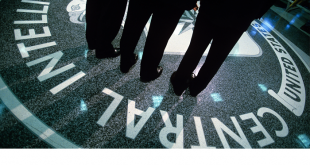The geopolitics of the multipolar world is dangerous, because it makes us consider what we live today in a new light. And it offers us a way to realise it.
In the transition to a multipolar world, a number of questions arise on the level of theory, among which one of the main ones arises: does the triumph of multipolarism put an end to classical geopolitics, or not?
The father of the theory of the multipolar world, the Russian philosopher Aleksandr Dugin, did not correctly and completely formulate an answer to this question in the first phase of theoretical composition, as it was premature at the time to reason about the theory’s success scenarios. Today, however, an answer is urgently needed.
Let us start with the fundamentals. Classical geopolitics, codified between the end of the nineteenth and the beginning of the twentieth century, sees in the words of Admiral Halford Mackinder one of its defining axioms, which has unquestionably dictated the law to this day: “Eurasia is the Heartland. He who controls the Heartland, controls the world”. Around this geographical axis of history, all geopolitics known to us has been inscribed. Today, the concept that holds all the scientific consequences in the context of the transformation from classical geopolitics to the geopolitics of the multi-polar world is the distributed Heartland, or distributed, if you prefer. Only with this can we look at the semantic structure of classical geopolitics with the essential dualism between the Sea Civilisation (also in the sense of Plato’s Proclus where he describes the ancient civilisation of Atlantis, defined as ’the worst’ in History) and the Earth Civilisation, which is preserved, remains present, and all the implications and elaborations that come from Carl Schmitt’s studies of the two civilisations. Classical geopolitics operates with two projections of these principles in geography and world history, identifying how they will be incorporated and manifested in the world’s great powers.
We retain, therefore, this interpretation of the two types of civilisations. The dualism already advocated by the Greek philosopher Proclus is fully confirmed by Mackinder, who emphasises this dualism as being made up of permanent principles, two factors in the development of the civilisations of mankind and which can be identified throughout human history: attraction to time, to materiality, to the fleeting; attraction to verticality, to spirit, to stable values. It is interesting that sea water cannot be drunk, as it is toxic to human beings, and therefore sea water is in a sense death, while fresh, terrestrial water is water of life. This ’exclusive’ duality between two historical-geographical points of attraction lies at the heart of classical geopolitics. The conflicts we experience are perfectly inscribed in the dualistic reading above. Classical geopolitics also finds its validity in the current context, if we think of well-known conflicts such as the Russian-Ukrainian one, which we know is a clash of civilisations between the West and Russia, or the Israeli-Palestinian one. One cannot say that classical geopolitics is outdated because its laws still work in full force today and therefore one can still use it as an interpretative methodology. However, one question remains: can one go further?
One can observe with calm objectivity that the classical Heartland, Eurasia, no longer suffices as a counterbalancing pole against the Sea Civilisation. Let us therefore consider two forms of post-classical geopolitics, the geopolitics of today: unipolar geopolitics, which affirms the absence of dualism and the triumph of the thalassocratic civilisation as described by Francis Fukuyama, Yuval Noah Harari, Clauss Schwab, the American democrats who are the partisans of this unipolar or, in some cases, a-polar world, which envisages the absolute cancellation of the Civilisation of the Earth even as a concept. This first form of post-classical geopolitics we can christen it as post-polarism, perfectly in line with post-modernity, and this is contemporary “dogmatic” geopolitics (in the thalassocratic sense, clearly), it was born from thinkers steeped in classical thalassocratic geopolitics and does not admit dissent.
Reading current events with this lens, it is clear how Russia today is fighting the ’war of the past’ to open up the world the future: it is the last geopolitical war of the past, the last fought according to Mackinderian axioms; what comes next will be “other”, different, ambitiously multipolar. Note well: Russia today, after the catastrophe of the 1990s, no longer has the resources to establish itself alone as a world power in competition with the West’s unipolar civilisation. Eurasia is no longer enough on its own: it lacks demographic and economic stability and this forces Russians fighting for traditional classical geopolitics to fight with new norms, to chart different routes and explore unknown territories. Russia needs allies and partners to complete this epochal mission. From a more metaphysical perspective, the Russians are the bearers of the last tellurocratic sacred will, fighting for eternity over temporality.
Imagining Russia’s victory in this last war of classical geopolitics, the extension of the Russian idea over the whole world is not congenial, because Russia does not have a universal ideology — which the Americans do, such as the ideology of human rights, genderism, etc. — that can attract the elites of the world. — that can appeal to the world’s elites and peoples. Russia is too small in this sense. It can save itself as ’little Eurasia’, limited to Russia itself, but this will not be decisive because it is a defensive fight, not an offensive one, and in the long run it does not pay off. Hence, multipolarity arises: if we cannot accept thalassocratic domination and cannot propose Eurasia as a universal idea, then we must move to multipolarity. Greater China, rising India, and Africa emancipated from the European West are examples of independence, and we must absolutely exclude any plan of Russian interference, even if only conceptually. Russia has an imperial vision 8in an entirely different sense from the past), but not a global one. Not even in theory is it permitted to imagine the other poles as subservient to Russian power.
This is where the geopolitics of the multipolar world is actually born, where an alternative is born. The West remains a (macro)pole with its maritime validity, with globalism as an ideology; all anti-globalism is a continuation and transfiguration of the Civilisation of the Earth: the Heartland is distributed over several poles, it is transformed and readapted, with a multiplicity of facets. This operational pluralisation represents a decisive transformation that is already underway.
In the 2016 U.S. elections, one clearly saw this ’dismemberment’, at least apparent, of the macro-pole called the West: the coasts (East Coast and West Coast) voted for the Democrats, the territorially central states voted for the Republicans. This ’domestic geopolitics’ has changed the fortunes of the star-spangled hegemon in no small measure. There is a kind of inner Heartland in America that is taking shape, so the U.S. can no longer be regarded as a single Sea Civilisation. This is an absolutely decisive point. There is a kind of inner Heartland Civilisation within the Sea Civilisation. We must begin to write a history of the American Heartland. It is interesting that in Mackinder’s landmark article on the Geographical Axis of History, he spoke of the USA as a tellurocratic civilisation in much the same way as Russia, which indicates that there was a radical change, temporally occurring after the proclamation of the 14 Principles by then-President Woodrow Wilson. It was those points that redefined America’s position towards thalassocracy.
We can also imagine that Russia is not totally terrestrial: there is a thalassocratic elite within Russia, such as the rulers of the 1990s, Western-style liberal entrepreneurs, many people who emigrated when the USSR collapsed and then returned as lords of liberal-capitalism. This is why Civilisation of the Sea and Civilisation of the Land become identifiable principles in all civilisations.
Today we can speak, to give a few more examples, of China’s Heartland, presented with Xi Jinping, who is profoundly tellurocratic, but who has a huge commercial maritime power, hence a maritime extension, even though China is not historically a sea power. Similarly with Nerendra Modi, who wants to propose an independent and ’decolonised in consciousness’ India, and this is a Heartland, but at the same time India has a strong maritime attraction that makes it tend towards globalism, with alliances with the U.S., UK, Japan as already narrated in the 20th century. The Islamic world is also made up of more terrestrial countries, such as Iran, and other countries that are exquisitely integrated into international globalism, such as the ’oil princes’ of the Arabian Peninsula and beyond. In Africa too, many forces promote a Pan-Africanism that is the affirmation of an African Heartland, an authentic civilisation of the earth, while other rulers want to be part of the Western project that fascinates and woos them. In Ibero-America, the same thing is happening: countries are pushing towards an Earth integration, while other leaders are dispassionately Atlanticist. Theoretically, this is also happening in Europe, which today is totally under Atlanticist control: look at the right-wing populism that has boasted — and continues to do so — a multipolar opening, but starting from erroneous premises, so much so that it has gained a fair amount of political power only to betray popular representation on time, confirming that in a territory militarily, politically, economically and culturally occupied by a foreign power (the USA), the preservation of power is not possible without the intervention of the Sea. Europe cannot and should not be subservient to other poles or civilisations, but in fact it is to the Atlanticist one; there is a theoretical Europe, which exists virtually and has a great History, which today is in a ’hidden’ phase and has nothing to do with Russia. Russia, however, is today fighting for multipolarity, which represents a chance for Europe to be reborn. The only possible Europe is an independent Europe, free of external power of any kind, autonomous and geopolitically for itself. Finally, the American Heartland sees in the electoral struggle, today represented by the challenge between Joe Biden and Donald Trump, a paraphrase of the internal geopolitical clash between Land and Sea. This is the end of the classical geopolitical struggle.
We hear the call for a revolutionary geopolitics, not only academic, but also made up of a militancy that is a struggle with the dictatorship of unipolarism and post-polarism.
The geopolitics of the multipolar world, on the other hand, is dangerous, because it makes us consider what we live today in a new light. And it offers us a way to realise it.
By: Strategic Culture Foundation
 Tehran Institute For International Studies tiis
Tehran Institute For International Studies tiis



